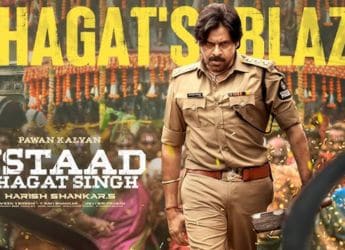- Home
- Games
- Games Opinion
- Final Fantasy XV's Planned Updates Show That It Is Taking Its Biggest Fans for Granted
Final Fantasy XV's Planned Updates Show That It Is Taking Its Biggest Fans for Granted

Last week Square Enix — the company behind the long-running Final Fantasy series - announced that its latest entry, Final Fantasy XV , has sold exceedingly well. Given the troubled 10 year development across the PS3, PS4 and Xbox 360 along with the oft-rumoured PC and Nintendo Switch ports, this was better than many expected.
Of course, for big releases these days, the first week of sales isn't enough to justify the investment anymore - the ongoing concern for Square Enix now is how to sustain revenues going forward, particularly when you consider that the last single-player mainline entry, Final Fantasy XIII, saw an 80 percent sales drop a week after release in March 2010.
This time around, there’s a Season Pass that promises a wealth of content well into next year, which could possibly stall a steep sales decline. But that's not all - Game Director Hajime Tabata revealed the road map for future Final Fantasy XV updates. These included fixing gameplay in Chapter 13 — a segment we referred to in our review as “particularly annoying”. More importantly, the story will also be modified through these updates.
“Updating the production of the second half of the game, further enhancing the experience of the story. For example, we are planning to add event scenes explaining where 'What happened to Ravus?' was from. In addition to the event scenes, voice responses and localisation work to all languages will occur so we will work firmly on this as a mid-term goal. Details of the plan will be announced once it’s decided,” Tabata said on Japanese gaming website Gamer.ne, as translated on gaming forum NeoGAF.
In our review we stated that Final Fantasy XV’s story was a mess. The above outline plans to rectify that, for free. On the surface, all these seem to be welcome additions to a game that already garnered high praise.
So how is this a problem? Well for one, Square Enix outright lied about the state of the game. Earlier in the year Tabata stated that the game was delayed to ensure it was in such a state that you wouldn’t need a day one patch to play it. Of course, that wasn't the case. His current statements contradict this completely. Today, you won’t get all of the game’s story on disc thanks to this.
That's a pretty big deal - the story is an integral part of role-playing games. Think of what would happen if EA decided to ship FIFA without a single licensed team? Or if Valve decide that Counter-Strike: Global Offensive should have stones instead of guns. It would not be pretty. For a game that’s a single-player, offline affair, you’d think that its narrative, of all things, would be tied down from the get-go. It reeks of poor development practises, and the lack of foresight.
Sure, plenty of other games have patches - The Witcher 3: Wild Hunt for example, was steadily updated well after its release. But those were undertaken to improve quality of life features, such as menus, or to remove bugs — nothing core to the experience and enjoyment of the game was added after release. This is a real issue and it gets all the worse, when you consider that fans were promised that you would not need an online connection to make the most of the game. 10 years down the line, how was something so essential not properly planned?
Allegedly, Tabata has said this is being done due to the success of the game. As usual, it is a little more complex than that. On day one, Metacritic and OpenCritic listed the game at a glowing 86 rating. Fast forward to now and you have the game sitting at a less flattering 83. That's the same as Final Fantasy XIII, derided by some fans as the worst game in the series. And that number could well drop as more and more sites get to play the game.
![]()
Square Enix might promise a steady stream of content via a Season Pass, but promising fixes to alleviate core story and level design complaints is not really something you can peg on the "success" of the game.
And this is where Final Fantasy XV fails spectacularly, in not being able to realise what should and should not be patched after release. More so when you consider that it was promised as a game where you did not need an online connection to get the best out of it.
Whatever the motivations, it’s not a good sign. Its depressing to see one of gaming’s greatest franchises reduced to cheap parlour tricks in order to keep its fans interested. The volte-face on the need for online connectivity and modifications to its story, long after its biggest fans have finished the game, is not a good sign — $60 doesn’t get you a game positioned and marketed as an offline, single-player experience. It gets you a game that clearly needed more time in development to meet its intended vision, even after 10 years.
Catch the latest from the Consumer Electronics Show on Gadgets 360, at our CES 2026 hub.
Related Stories
- Samsung Galaxy Unpacked 2025
- ChatGPT
- Redmi Note 14 Pro+
- iPhone 16
- Apple Vision Pro
- Oneplus 12
- OnePlus Nord CE 3 Lite 5G
- iPhone 13
- Xiaomi 14 Pro
- Oppo Find N3
- Tecno Spark Go (2023)
- Realme V30
- Best Phones Under 25000
- Samsung Galaxy S24 Series
- Cryptocurrency
- iQoo 12
- Samsung Galaxy S24 Ultra
- Giottus
- Samsung Galaxy Z Flip 5
- Apple 'Scary Fast'
- Housefull 5
- GoPro Hero 12 Black Review
- Invincible Season 2
- JioGlass
- HD Ready TV
- Laptop Under 50000
- Smartwatch Under 10000
- Latest Mobile Phones
- Compare Phones
- Tecno Spark Go 3
- iQOO Z11 Turbo
- OPPO A6c
- Samsung Galaxy A07 5G
- Vivo Y500i
- OnePlus Turbo 6V
- OnePlus Turbo 6
- Itel Zeno 20 Max
- Lenovo Yoga Slim 7x (2025)
- Lenovo Yoga Slim 7a
- Lenovo Idea Tab Plus
- Realme Pad 3
- Garmin Quatix 8 Pro
- NoiseFit Pro 6R
- Haier H5E Series
- Acerpure Nitro Z Series 100-inch QLED TV
- Asus ROG Ally
- Nintendo Switch Lite
- Haier 1.6 Ton 5 Star Inverter Split AC (HSU19G-MZAID5BN-INV)
- Haier 1.6 Ton 5 Star Inverter Split AC (HSU19G-MZAIM5BN-INV)
















